The US Open women's singles final ended with thunderous applause, and Sabalenka raised her finger to the sky, showing that this championship belonged both to her and her father who had "constantly protected her."
By successfully defending her US Open women's singles title and winning her fourth Grand Slam trophy, her victory remarks focused not on technical analysis but on a heartfelt tribute to her father Sergey, who unexpectedly died of meningitis in 2019.
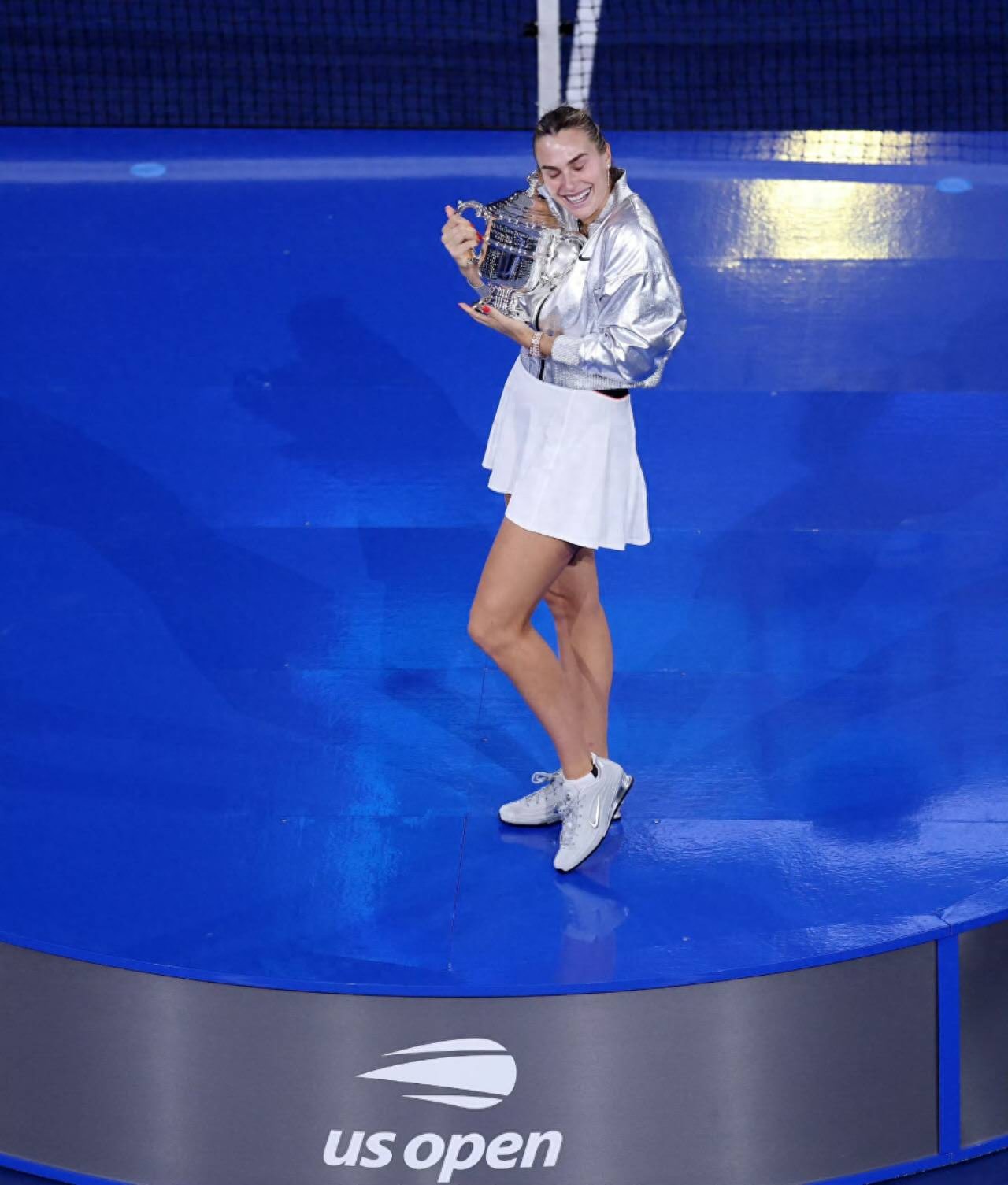
"When he passed away, I was deeply saddened," Sabalenka said with a choked voice. "It was an incredibly tough time for me and my family. But at that moment, I chose to turn this into my motivation: I wanted to make our family name part of history."
Sabalenka’s father Sergey was a hockey player who introduced her to sports when she was just six years old. He died suddenly from meningitis at age 43, just as Sabalenka was emerging in the tennis world. Yet he remained one of the most influential figures in her career. His sudden death dealt a huge blow but also ignited a deep competitive fire within her.
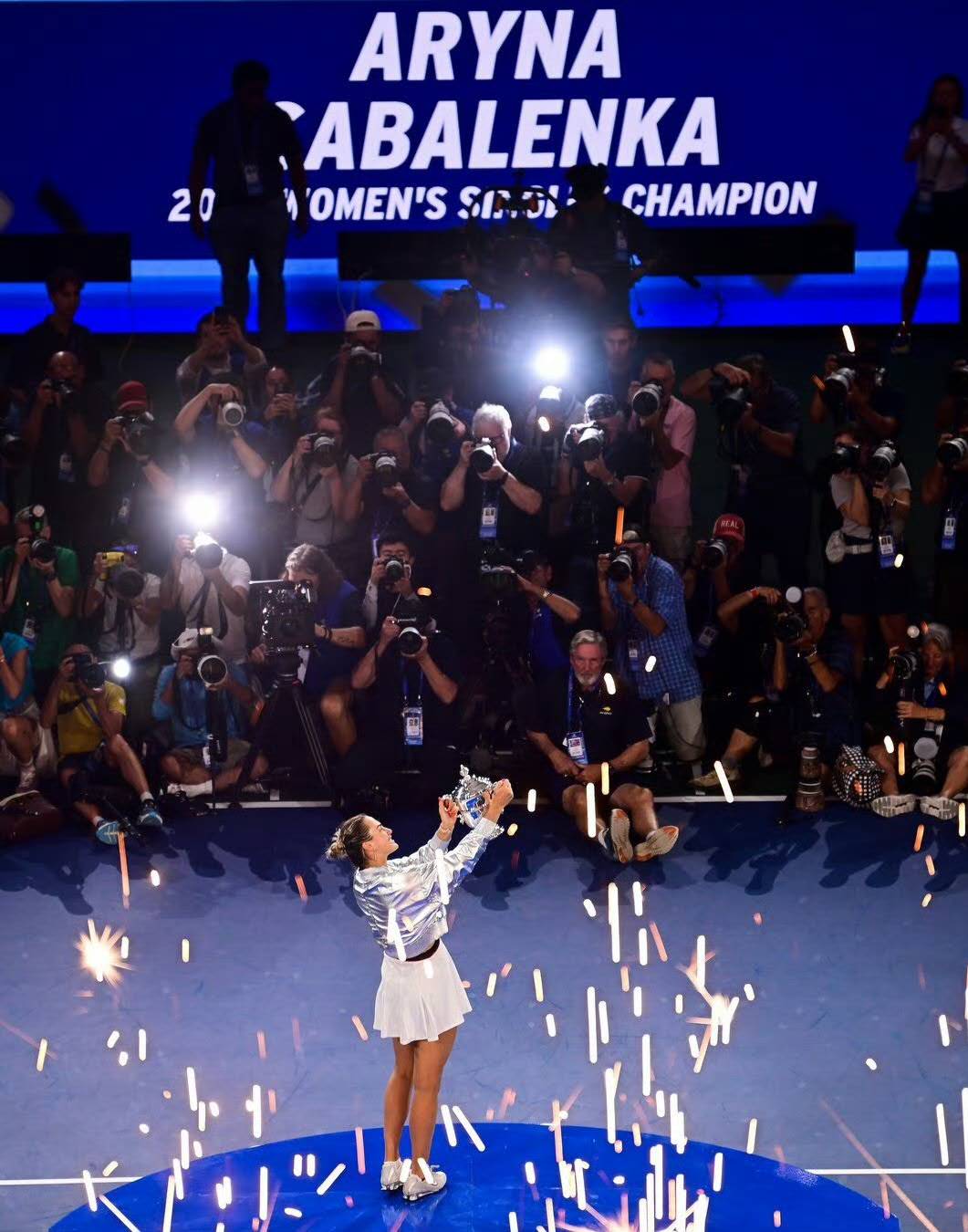
"I believe he has been watching over me from above. I know he has become my strength, and that means a lot," Sabalenka told reporters after the match, her eyes shimmering with tears.
After her father’s death, Sabalenka went through a period of deep despair, the biggest setback in her 21 years of life. His passing changed her perspective on life and tennis: "Tennis is just a part of life; compared to losing a match, there are far worse things in this world."
Former world No.1 Chris Evert commented on social media: "The strength of her father is with her! Sabalenka’s story reminds us that sports are not just about winning or losing, but about humanity, emotions, and legacy."
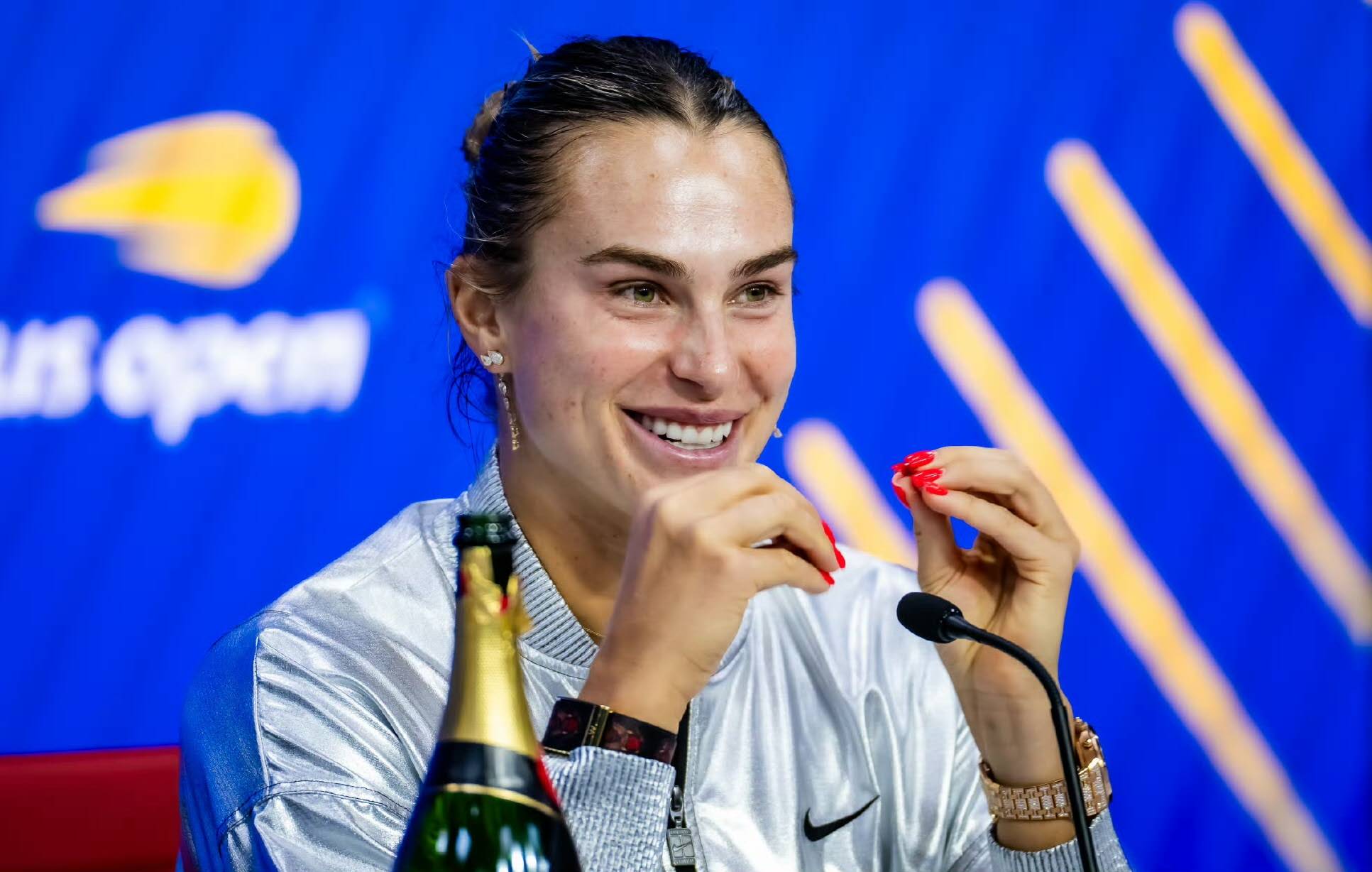
On social media, fans worldwide were deeply moved by Sabalenka’s heartfelt expression. One wrote, "I cried when I saw her pointing to the sky. Her father in heaven must be so proud!" Another commented, "The truest embodiment of sportsmanship—turning the deepest pain into the strongest power."
Additionally, Sabalenka shared a significant mental shift this year, explaining how losses in the Australian and French Open finals made her reconsider her approach to big matches.
"After losing the Australian Open final, I thought the right thing was to forget and move on, but then I repeated the same mistake at the French Open final," Sabalenka said at a press conference. "So I told myself: it’s time to really analyze these finals and learn from them because I can’t let this happen again."
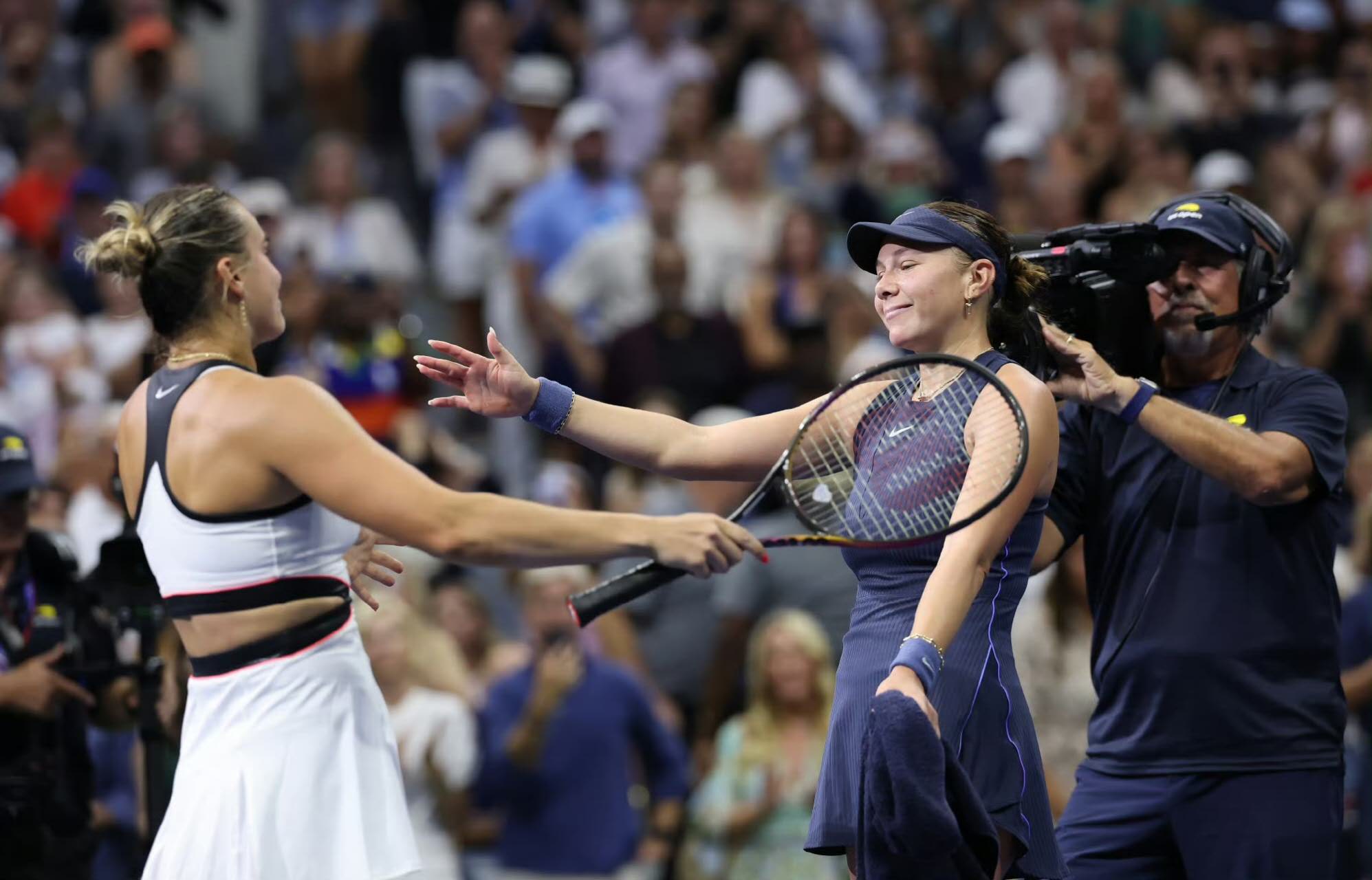
While vacationing on Mykonos Island, she read the autobiography of neurosurgeon James Doty, "Into the Magic Shop," which became a pivotal turning point for her.
"Reading it, I realized many things. It taught me to stay focused at critical moments and make the right choices. I began reflecting on why my emotions had controlled my play in those previous finals."
In this final, Sabalenka maintained strict emotional control, saying, "No matter what happens, I will never let my emotions take over."
Tennis commentator Zhan Jun noted after the match: "Sabalenka’s victory was built on high-quality defense and a steady serve. She is the first woman since Serena Williams to successfully defend this title."
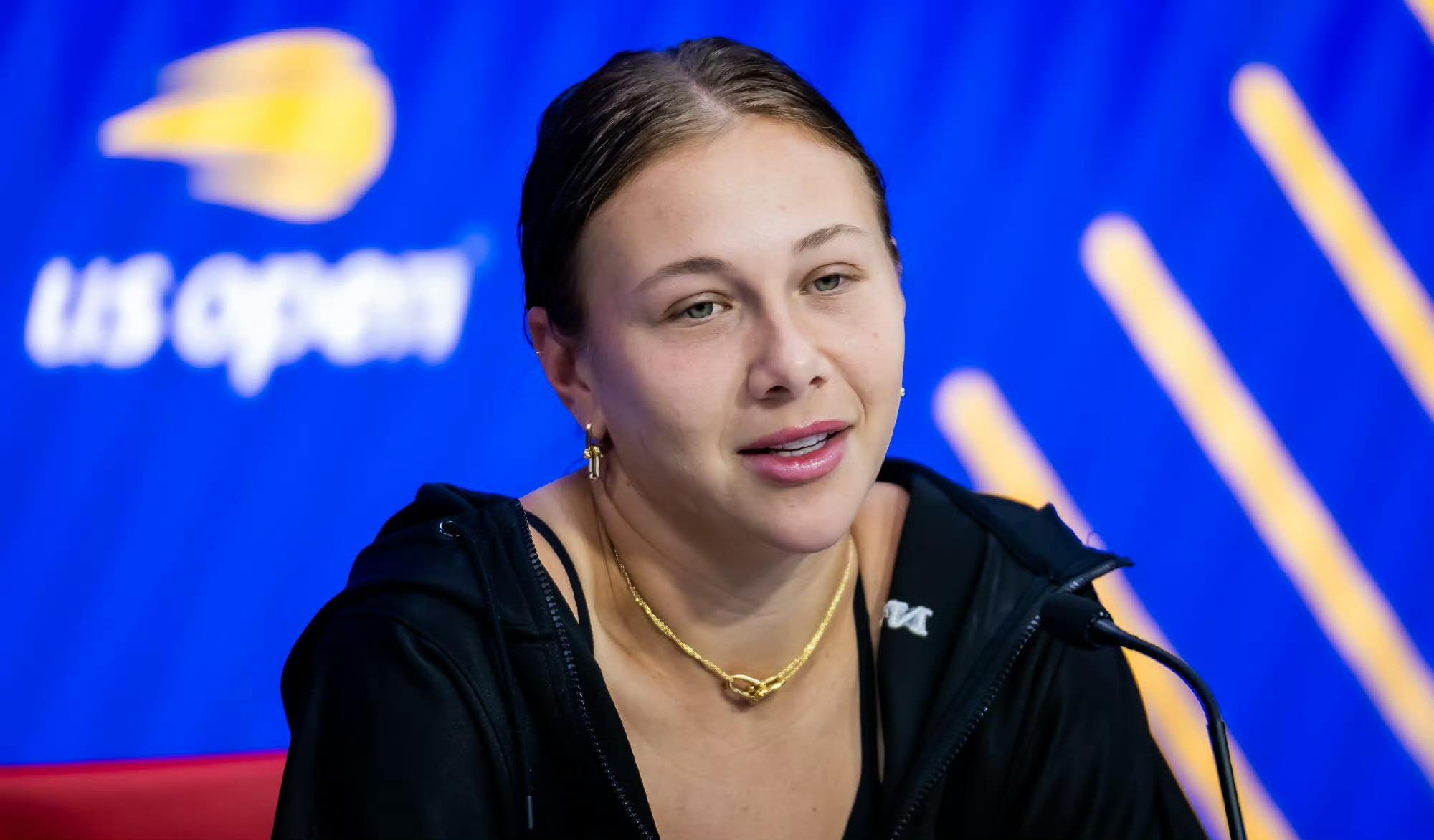
Turning to another tennis news item, Sabalenka’s final opponent, Anisimova, candidly admitted in the post-match press conference that she did not play her best tennis and attributed a key factor to the roof being closed during the final.
Due to thunderstorms in New York, the match was played under a closed roof at Arthur Ashe Stadium. This unexpectedly affected Anisimova: "I have never played with the roof closed during the day, and I couldn’t see the ball when serving."
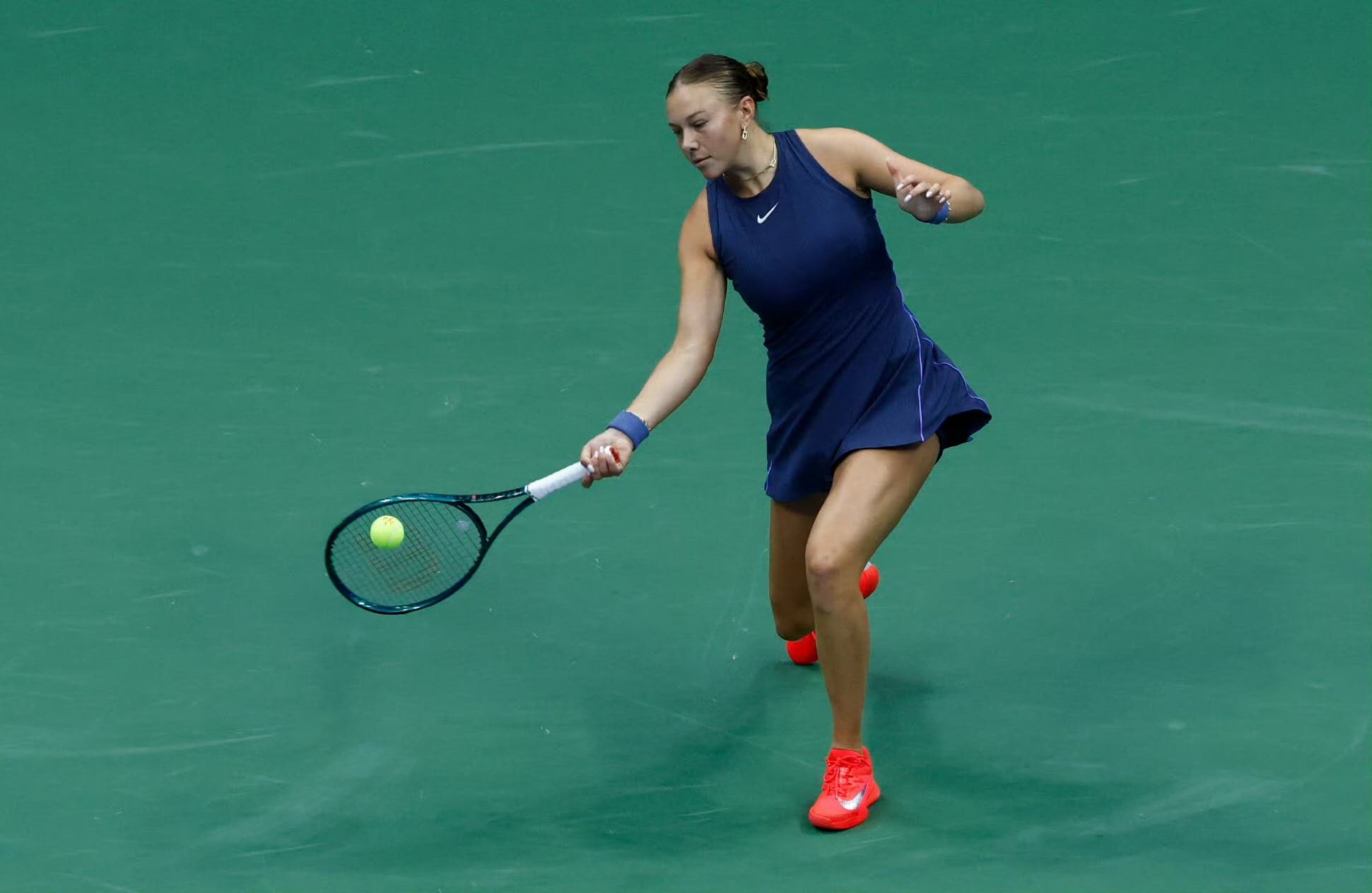
The American player repeatedly complained to the umpire that the court lights were too bright but was told nothing could be changed. She described, "The roof is white, and throughout the match, I couldn’t see the ball when serving. From warm-up, I knew this would be a real problem for me."
Anisimova said she couldn’t adjust at all, "Because I couldn’t see the ball when serving, it severely disrupted my rhythm." Notably, in this women’s singles final, her second serve win rate was only 36%, and she was broken five times during the match.(Source: Tennis Home, Author: Lu Xiaotian)







 Links
Links
 Contact
Contact
 App
App


